<< Previous | Displaying results 371-380 of 6809 for "" | Next >>
Gerda was an only child of Jewish parents. They lived in Breslau, a large industrial city on the Oder River. Before World War II, Breslau's Jewish community was the third largest in Germany. Her father worked as a salesman for a large hardware and building materials company. Gerda attended public school until age 9 when she was admitted to a Catholic girls' school. 1933-39: Gerda walked through the city to see the aftermath of a pogrom. The windows of Jewish shops had been shattered. A torched synagogue…
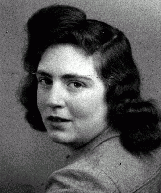
Zigmond's parents were Czechoslovakian Jews who had emigrated to Belgium. His mother, Rivka, was a shirtmaker. She had come to Belgium as a young woman to find a steady job, following her older brother, Jermie, who had moved his family to Liege several years earlier. In Liege, Rivka met and married Otto Adler, a businessman. The couple looked forward to raising a family. 1933-39: Zigmond was born to the Adlers in 1936, but his mother died one year later. His father remarried, but the marriage didn't last.…
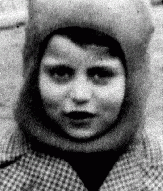
Renate, her twin brother, Rene, and their German-Jewish parents lived in Prague. Shortly before the twins were born, Renate's parents had fled Dresden, Germany, to escape the Nazi government's policies against Jews. Before leaving Germany to live in Czechoslovakia, Renate's father, Herbert, worked in the import-export business. Her mother, Ita, was an accountant. 1933-39: Renate's family lived in a six-story apartment building along the #22 trolley line in Prague. A long, steep flight of stairs led up to…
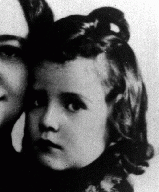
Henoch's religious Jewish parents married in 1937. His father, Moishe Kornfeld, and his mother, Liba Saleschutz, had settled in Kolbuszowa, where Henoch's mother was raised. There, Liba's father bought the newlyweds a home and started his new son-in-law in the wholesale textile business. 1938-39: Henoch was born in late 1938, and was raised among many aunts, uncles and cousins. Around Henoch's first birthday, Germany invaded Poland and soon reached Kolbuszowa. Polish soldiers on horses tried to fight…
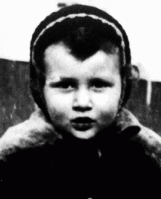
Tomas' parents were Jewish. His father, Robert Kulka, was a businessman from the Moravian town of Olomouc. His mother, Elsa Skutezka, was a milliner from Brno, the capital of Moravia. The couple was well-educated and spoke both Czech and German. They married in 1933 and settled in Robert's hometown of Olomouc. 1933-39: Tomas was born a year and a day after his parents were married. When Tomas was 3, his grandfather passed away and the Kulkas moved to Brno, which was his mother's hometown. On March 15,…
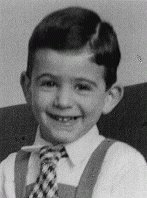
The younger of two sisters, Lidia was born to Jewish parents living in Sarospatak, a small town in northeastern Hungary. Lidia's parents owned a successful dry goods business. At the time, ready-made clothes were still rare in the countryside. Townspeople and local farmers would purchase fabric at the Lebowitz store and then take it to their tailor or seamstress to be sewn into clothes. 1933-39: Lidia was 2 when her Aunt Sadie, who had immigrated to the United States many years earlier, came to visit…
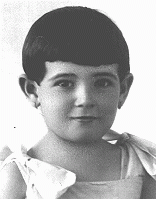
Lisl was the youngest of two children born to a Jewish family in the Czechoslovakian capital of Prague, a city with a Jewish community that dated back to the eleventh century. Lisl's family lived on Karlova Street in the Karlin district of the city. Lisl's father owned a wholesale business that sold floor coverings. 1933-39: Lisl was 12 when, on March 15, 1939, the German occupation forces entered Prague. She went to school that day and a teacher shouted at her, "You dirty, filthy Jew," and then spat in…
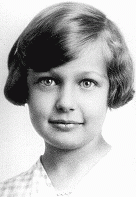
The elder of two daughters born to a Jewish father and a Catholic mother, Helene was raised as a Catholic in Vienna. Her father died in action during World War I when Helene was just 5 years old, and her mother remarried when Helene was 15. Known affectionately as Helly, Helene loved to swim and go to the opera. After finishing her secondary education she entered law school. 1933-39: At 19 Helene first showed signs of mental illness. Her condition worsened during 1934, and by 1935 she had to give up her…
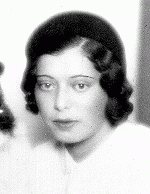
Joseph was born in Bitterfeld, Germany, to Roma ("Gypsy") parents. For reasons unknown, he was raised in an orphanage for the first one-and-a-half years of his life. At the time of Joseph's birth, some 26,000 "Gypsies"—members of either the Sinti or Roma tribes—lived in Germany. Though most were German citizens, they were often discriminated against by other Germans and subjected to harassment. 1933-39: At age one-and-a-half, Joseph was taken into foster care by a family living in Halle, a city some…
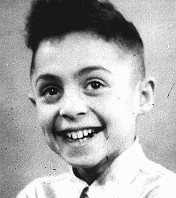
In 1919 Robert and his brother Karl founded the Nerother Bund youth group in the Cologne region. Like other German youth groups, it aimed to bring youth closer to nature through camping and hiking. Homosexual relationships sometimes developed from the intense adolescent male camaraderie, and the Nerother Bund accepted these friendships, as did a number of German youth groups at the time. 1933-39: Soon after the Nazis took power in 1933, they dissolved all independent youth groups and urged the members to…
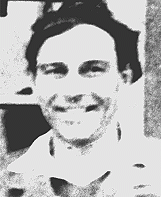
We would like to thank Crown Family Philanthropies, Abe and Ida Cooper Foundation, the Claims Conference, EVZ, and BMF for supporting the ongoing work to create content and resources for the Holocaust Encyclopedia. View the list of donor acknowledgement.